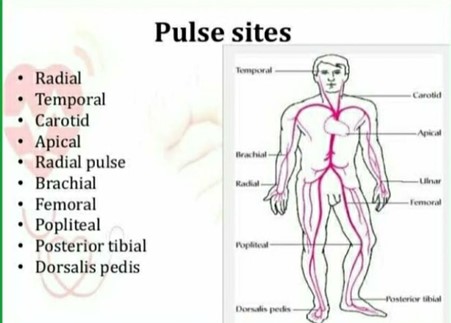After completing post anesthesia recovery assessments, the registered nurse (RN) asks the practical nurse (PN) to transfer four clients, each two hours post-birth, to the postpartum unit. Which client should the PN ask the RN to reassess prior to transfer?
A primigravida whose perineal pain has worsened one hour after being medicated.
A multigravida whose peri-pad is 1/4 saturated with lochia rubra after one hour.
A multigravida complaining of strong afterbirth pains when breastfeeding.
A primigravida who passed a small clot when she sat up on the edge of the bed.
The Correct Answer is A
This client should be reassessed by the RN prior to transfer, as worsening perineal pain may indicate a hematoma, infection, or inadequate pain management. The RN should inspect the perineum, check the vital signs, and evaluate the effectiveness of the medication.
The other options are not correct because:
B. A multigravida whose peri-pad is 1/4 saturated with lochia rubra after one hour does not need to be reassessed by the RN, as this is a normal finding for a client two hours post-birth. Lochia rubra is a red-colored vaginal discharge that contains blood and debris from the placental site, and it usually lasts for 3 to 4 days after delivery. A peri-pad that is 1/4 saturated after one hour is within the expected range of blood loss.
C. A multigravida complaining of strong afterbirth pains when breastfeeding does not need to be reassessed by the RN, as this is a normal finding for a client two hours post-birth. Afterbirth pains are cramps caused by uterine contractions that help shrink the uterus and prevent bleeding. They are more common and intense in multiparous women and during breastfeeding, as oxytocin is released and stimulates contractions.
D. A primigravida who passed a small clot when she sat up on the edge of the bed does not need to be reassessed by the RN, as this is a normal finding for a client two hours post-birth. Small clots may form in the uterus or vagina due to pooling of blood during rest or anesthesia, and they are usually expelled when changing position or ambulating. As long as the clot is smaller than a plum and there is no excessive bleeding or pain, it is not a cause for concern.
Nursing Test Bank
Naxlex Comprehensive Predictor Exams
Related Questions
Correct Answer is B
Explanation
- A bowel pattern is the frequency, consistency, and appearance of a person's bowel movements. A normal bowel pattern is what's normal for each person, and it can vary depending on factors such as diet, age, physical activity, and health conditions.
- A focused gastrointestinal system assessment includes collecting subjective data about the patient's history of gastrointestinal disease, signs and symptoms of gastrointestinal problems, diet and nutrition, and bowel patterns. It also includes inspecting and auscultating the abdomen for any abnormalities.
- When a client reports having a bowel movement three days ago, the first action that the practical nurse should implement is to determine the client's usual bowel pattern. This will help to evaluate if the client is experiencing constipation or if this is their normal frequency. It will also help to identify any changes or risk factors that may affect the client's bowel function.
Therefore, option B is the correct answer, while options A, C, and D are incorrect.
Option A is incorrect because administering a stool softener without assessing the client's bowel pattern may not be appropriate or effective.
Option C is incorrect because encouraging ambulation may help to stimulate bowel activity, but it is not the first action to take.
Option D is incorrect because recommending dietary changes may be helpful for preventing or treating constipation, but it is not the first action to take.
Correct Answer is C
Explanation
- A radial pulse is the pulse felt at the wrist, where the radial artery runs along the thumb side of the forearm. It is one of the most common sites for measuring a person's heart rate.
- To measure a radial pulse, the examiner should place two or three fingers over the radial artery, just below the wrist crease, and apply gentle pressure until a pulsation is felt. The examiner should not use the thumb, as it has its own pulse and may interfere with the accuracy of the measurement. The examiner should count the number of beats for 15, 30, or 60 seconds, depending on the regularity and rate of the pulse.
- In the picture, the unlicensed assistive personnel (UAP) is using the thumb to measure the radial pulse, which is incorrect. The practical nurse (PN) should demonstrate the correct pulse site to the UAP and explain why using the thumb is not appropriate. This will help to ensure that the UAP obtains an accurate and reliable pulse rate for the client.
Therefore, option C is the correct answer, while options A, B, and D are incorrect.
Option A is incorrect because instructing the UAP to report any abnormal findings does not address the error in technique.
Option B is incorrect because reminding the UAP to check the pulse volume does not address the error in technique.
Option D is incorrect because confirming the accuracy of the pulse rate obtained by the UAP does not address the error in the technique.

Whether you are a student looking to ace your exams or a practicing nurse seeking to enhance your expertise , our nursing education contents will empower you with the confidence and competence to make a difference in the lives of patients and become a respected leader in the healthcare field.
Visit Naxlex, invest in your future and unlock endless possibilities with our unparalleled nursing education contents today
Report Wrong Answer on the Current Question
Do you disagree with the answer? If yes, what is your expected answer? Explain.
Kindly be descriptive with the issue you are facing.
